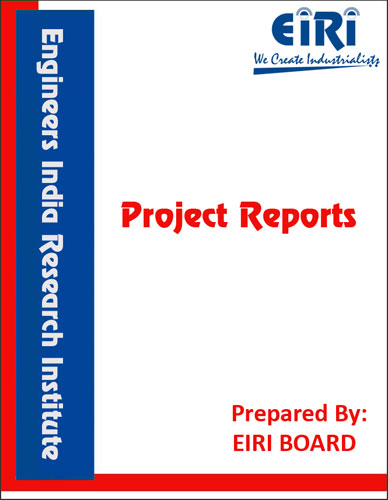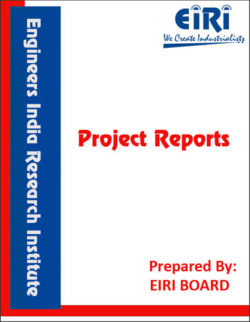The project report includes Present Market Position and Expected Future Demand, Market Size, Statistics, Trends, SWOT Analysis and Forecasts. Report provides a comprehensive analysis from industry covering detailed reporting and evaluates the position of the industry by providing insights to the SWOT analysis of the industry.
Dry Mortar Mix is gaining eminence in modern times owing to its versatile
superiority in regard to characteristics over the conventional in-situ mortars
viz. better performance easy to uses easy to set and the quality of leaving no
crakes and voiles. Besides it has preferably better and wider field of
application as patching & repairing materials for plasting purposes and other
construction works viz. internal/external plastering masonry work etc. It is a
very good substitute for conventional in-situ mortars.
Various types of Ready mix dry mortar comprise internal plaster
mortar, external plaster mortar masonry mortar, quick setting mortar high
strength mortar repair mortar self leaving flooring mortar pre-mix RCC mortar
etc.
One specific advantage regarding manufacture of these ready mix dry mortar
is that they can be manufactured in a single unit by variation in composition
proportions as per different formulations.
Ready mix dry mortar is particularly useful on congested siles or in road
construction where little space for the mixing plant and for extensive
aggregate stockpile is available but the greatest single advantage of ready
mix dry mortar is that it may be made under better conditions of control than
are normally possible on any large construction sites.
MORTARS
These consist of finely ground refractory grain and plasticizers that can
be thinly spread on brick during construction.
For air – setting mortars sodium silicates or phosphates provide strength
at room temperature. Heat setting mortars contain no additives and develop
strength only when a ceramic bond is formed at high temperatures.
AIR – SETTING MORTAR
A refractory composition containing chemical agents that sure hardening at
temperatures below that of ceramic bonding but above room temperature sometimes
called “air hardening”.
HOT-SETTING BONDING MORTAR
A refractory mortar material which requires relatively high temperature fro the
development of a bond.
MASONRY CEMENTS
Masonry cements are cements fro use in mortars for masonry construction. They
are formulated to yield easily workable mortars and contain special additives
that reduce the loss of water from the mortar to the prours masonry units.
INTRODUCTION
USES AND APPLICATION
PROPERTIES AND CHARACTERISTICS
B.I.S. SPECIFICATION
RAW MATERIALS FOR DRY MIX MORTAR
PRODUCTION AND TYPES OF DRY MIX MORTAR
MARKET SURVEY (INDIAN)
MARKET POTENTIAL OF DRY MIX MORTORIN MAHARASHTRA
PRESENT MANUFACTURERS/SUPPLIERS OF DRY MIX MORTAR
RAW MATERIALS AND COMPOSITION OF DRY MIX MORTAR
TECHNICAL DETAILS OF MORTAR MIX
FORMULATIONS
FORMULATION OF DRY MIX MORTAR (TILE ADHESIVE)
PROCESS OF MANUFACTURE OF READY DRY MIX MORTAR
PROCESS IN DETAILS AND EXPERIMENTAL WORK FOR
PROPERTY SPECIFICATION
PROCESS FLOW DIAGRAM
DRY MIX MORTOR TECHNOLOGY AND ITS ADVANTAGES
MANUFACTURING OF VARIOUS TYPES OF READY MIX DRY
MORTARS IN THE SAME PLANT
INGREDIENT USED FOR THE MANUFACTURE OF READY MIX DRY MORTARS
COST ANALYSIS OF VARIOUS TYPES OF MORTORS AND COMPARISON WITH ONVENTIONAL
IN-SITU MORTARS
ADVANTAGES OF READY MIX DRY MORTARS OVER THE CONVENTIONAL IN-SITU MORTAR
CONCEPT OF READY MIX MORTAR AS A SUBSTITUTE FOR THE CONVENTIONAL IN-SITU
(MADE AT SITE) MORTAR
MARKETING/ADVERTISING REQUIRED FOR THIS KIND OF BUSINESS
POSSIBILITY/VIABILITY TO SET UP THE PLANT AT A DISTANCE OF 500 TO 1000 KMS
FROM THE MARKET BEING TARGETED
MARKETING OF THIS PRODUCT READY MIX DRY MORTAR VIS A VIS RETAIL & BULK (MASS
CONSTRUCTION)
GENERAL PUBLIC PERCEPTION OF PRODUCT IN INDIA
PLANT LAYOUT
RAW MATERIALS CALCULATIONS
SUPPLIERS OF PLANT & MACHINERIES (INDIAN)
SUPPLIERS OF PLANT & MACHINERY (IMPORTED)
SUPPLIERS OF RAW MATERIALS
SUPPLIERS OF PLANT & MACHINERY (IMPORTED)
SUPPLIERS OF RAW MATERIALS
APPENDIX – A:
1. COST OF PLANT ECONOMICS
2. LAND & BUILDING
3. PLANT AND MACHINERY
4. FIXED CAPITAL INVESTMENT
5. RAW MATERIAL
6. SALARY AND WAGES
7. UTILITIES AND OVERHEADS
8. TOTAL WORKING CAPITAL
9. COST OF PRODUCTION
10. PROFITABILITY ANALYSIS
11. BREAK EVEN POINT
12. RESOURCES OF FINANCE
13. INTEREST CHART
14. DEPRECIATION CHART
15. CASH FLOW STATEMENT
16. PROJECTED BALANCE SHEET



